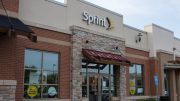It may not come as a surprise to breakfast consumers that Honey Nut Cheerios — whose box features a gleeful cartoon bee dangling a honey dipper over a bowl like a magic wand — is sugary.
A lawsuit filed in federal court in California against General Mills alleges, however, that consumers have been duped into thinking the company’s best-selling cereal brand is health food.
The complaint, which seeks class-action status, alleges that the marketing of Honey Nut Cheerios and other sweeter Cheerios brands such as Apple Cinnamon, camouflages the amount of sucrose, glucose and fructose in the cereals to the point of violating consumers laws.
The California plaintiffs’ firm that brought the complaint targets the health-related claims on the packaging and in advertising.
The cereals, like most food products, have a Nutrition Facts label specifying the ingredients and numbers of grams of sugar per serving.
But General Mills , the lawsuit claims, plays up the cereals’s more nutritious ingredients, like its abundance of whole grains, that the company says can help lower cholesterol. The boxes also tout a seal of approval from the American Heart Association.
The lawsuit says the cereals, in reality, are really O’s of doom. Citing health studies, it states:
The scientific evidence is compelling: Excessive consumption of added sugar is toxic to the human body. Experimentally sound, peer-reviewed studies and meta-analyses convincingly show that consuming excessive added sugar—any amount above approximately 5% of daily caloric intake—greatly increases the risk of heart disease, diabetes, liver disease, and a wide variety of other chronic morbidity.
Despite the compelling evidence that sugar acts as a chronic liver toxin, detrimentally affecting health, to increase the price and sales of its products, General Mills leverages a policy and practice of marketing high-sugar cereals, bars, other foods with health and wellness claims.
A General Mills spokesman said the plaintiffs are the one making misleading claims.
“This lawsuit is without merit,” a company spokesman told Law Blog. “Cereal has long been established as a nutritious and wholesome way to start the day, and General Mills continues to stand behind the quality of these products and the accuracy of the products’ labels. ”
The lawsuit comes at a time of shifting breakfast habits and waning demand for cereal that have pushed General Mills revenues downward.
And it doesn’t just target Cheerios but makes similar claims about other General Mills brands—including Cinnamon Toast Crunch, Cocoa Puffs, Lucky Charms and Trix, and also its line of breakfast biscuits.
The plaintiffs are asking the court to order General Mills to change its labeling and “pay restitution to restore funds that may have been acquired” by the company’s allegedly deceptive practices.
The Cheerios lawsuit is among a flurry of class-action-seeking complaints filling up the dockets in recent years, a litigation trend recently examined by the Chicago Tribune.
The paper highlighted lawsuits like ones accusing Kraft Heinz of misrepresenting the contents of its Parmesan cheese and complaints alleging that Quaker Oats tricked consumers into thinking its Maple & Brown Sugar oatmeal is made with real maple syrup. The companies say they expect courts to dismiss the complaints.
A labeling lawsuit recently came before the Supreme Court. That was the false-advertising case brought by Pom Wonderful about the marketing of Minute Maid pomegranate-blueberry juice.
The Tribune said such lawsuits can prod food companies to be more precise and careful about their labeling, but plaintiffs can overreach:
“You don’t want to have your case to be the next Cap’n Crunch Berries,” [food-safety lawyer Bill] Marler said.
Marler referred to the 2009 lawsuit in which a California woman sued PepsiCo, parent company of Quaker Oats, alleging she was misled because Cap’n Crunch Berries cereal does not contain any real fruit. A California federal judge tossed the suit.
“This Court is not aware of, nor has Plaintiff alleged the existence of, any actual fruit referred to as a ‘crunchberry.’ … So far as this Court has been made aware, there is no such fruit growing in the wild or occurring naturally in any part of the world,” U.S. District Judge Morrison England wrote in his opinion.
Source: blogs.wsj.com





Be the first to comment on "How Sweet It Is: Lawsuit Accuses Honey Nut Cheerios of Deceptive Health Claims"